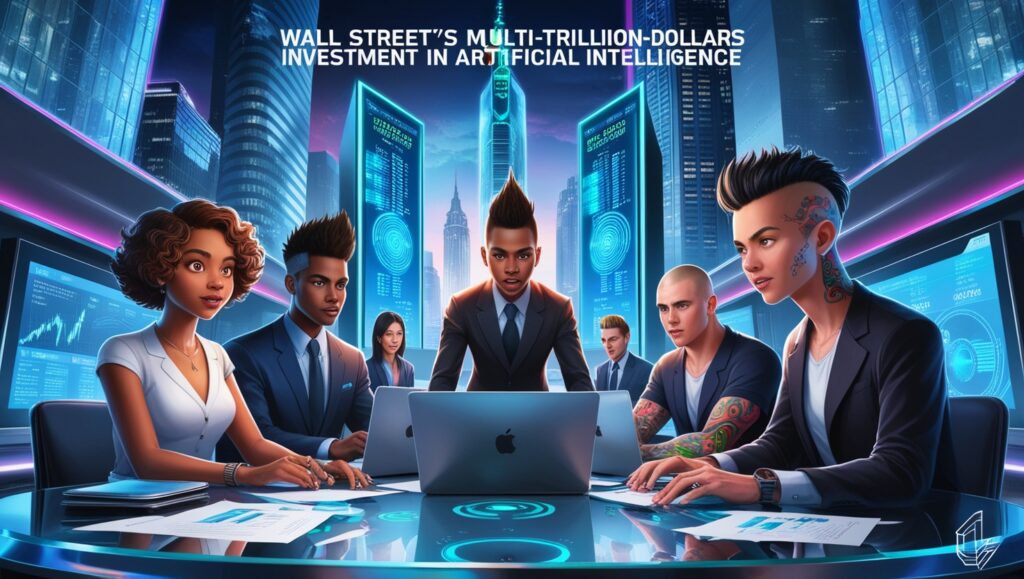On July 16, the S&P 500 index, one of the most generally quoted benchmarks in American capitalism, surpassed its all-time high market value of $47 trillion. Only seven of the 500 publicly traded corporations accounted for one-third of the total value. To put it another way, 1.4 percent of those corporations were worth more than $16 trillion, the highest concentration of money in the fewest number of companies in American stock market history.
Microsoft, Apple, Amazon, Nvidia, Meta, Alphabet, and Tesla are well-known names. By ethos if not by address, they are all Silicon Valley. They have all placed enormous bets on artificial intelligence in the hopes that the new technology will improve ad targeting (as in the cases of Meta’s Facebook and Instagram), enable robotaxis (as in the case of Elon Musk), or, in the case of Nvidia, simply produce the chips necessary for the technology to function in the first place. Despite their many similarities, seven corporations, worth over a trillion dollars, have united under a singular name: the Magnificent Seven.
But these titans of the American economy have been failing during the last month. Their market worth dropped by $2.6 trillion as a result of a recent downturn; as one Twitter user noted, this is equivalent to the whole market capitalization of Nvidia, which was the most valuable private corporation in the world for a brief period of time a few weeks ago. The news has been unfavorable everywhere. For instance, Tesla’s new self-driving future appeared to be very similar to its previous one, which was a lofty goal that didn’t seem likely to materialize at all, let alone anytime soon. Furthermore, Microsoft—which holds a sizable minority share in OpenAI—reported that the growth of its AI cloud computing division had fallen short of expectations.
The dramatic drop in the Magnificent Seven stocks may appear to be a sign that Wall Street has already lost faith in AI and that the idea that it will transform industries and spur enormous productivity growth in the near future is less certain. And to some extent, that is accurate.It appears that Wall Street is accepting the notion that artificial intelligence is the kind of company where excellent marketing is practically ingrained in the name. Similar to declaring you work in “cures,” it sounds fantastic if it is effective. ChatGPT amply demonstrates the technology’s viability. However, the worst-case scenarios—which call for abrupt concentrations of political power and widespread layoffs—have also failed to materialize. AI hasn’t actually displaced a great deal of jobs; in the few instances that it has, firms have ended up hiring humans again. (Forget about the exaggerated theories about superintelligent machines or Matrix-like situations.) Something of a mood shift has resulted from that. These days, criticizing something substandard or careless as being produced by AI is a typical occurrence. Goldman Sachs published a very critical analysis of the sector earlier this year, describing it as too cumbersome, too pricey, and generally less helpful than it has been perceived to be. On a corporate podcast, prominent Goldman analyst Jim Covello stated, “At this point, there isn’t a single thing that this is being used for that’s cost-effective.”
AI is here to stay, and in the next months, it will undoubtedly advance in sophistication, not to mention its immense potential in the long run. This explains why these firms remain incredibly large despite the weakening of the AI-investment thesis. CEOs in Silicon Valley enjoy rolling their noses at their East Coast colleagues who are skeptical of them. In particular, banks are too cautious, too focused on the here and now, and too narrow-minded to see the big picture. What if it isn’t financially advantageous? The future is here!
Nevertheless, Wall Street has reversed course on its winners-take-all approach, and public firms depend on public funds. Amidst the Magnificent Seven’s downfall, the Russell 2000, an index comprising smaller companies, has experienced an increase of over 11%. That amounts to roughly $300 billion in US dollars, or less than 2 percent of the Magnificent Seven’s peak price. However, it is an indication of something much larger. A large number of businesses, such as consumer brands like Abercrombie & Fitch and E.l.f. Beauty, just lack the resources to use AI effectively or in situations where the technology is irrelevant.
Look, nobody is going to invest in a company simply because it does not use AI. Wall Street hasn’t suddenly become Luddite. What’s going on here boils down to what Covello was talking about: the tedious but necessary task of determining what’s cost effective.








